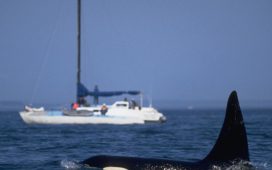Fires that have devastated a Brazilian tropical wetlands region famed for its wildlife were started by humans and exacerbated by its worst drought in nearly 50 years, according to Brazilian authorities, firefighters and environmentalist groups.
Images of cremated snakes, tapirs cooked to death, and jaguars with bandaged, burnt paws in the Pantanal region in Brazil’s centre-west have horrified Brazilians at a time when fires are also razing forests in the Amazon. A dark cloud of soot from fires is heading towards São Paulo.
“It is a desolate scenario,” said Fernando Tortato, a research scientist for the Panthera non-profit group which runs a farm in the Pantanal where jaguars roamed.
Since record numbers of fires began in July, nearly a fifth of this unique biome has been destroyed. Local authorities have vowed to catch those responsible.
“Somebody started the fire,” said Mauro Mendes, governor of Mato Grosso state, vowing that “anyone who committed crime will not sleep easily.”
On 14 September a federal police operation targeted cattle ranchers suspecting of starting fires that destroyed 25,000 hectares, raiding five cattle ranches in the remote Serra do Amolar area in the south Pantanal and four homes in nearby towns.
“These farms are in inhospitable places, so it’s hard for this fire to have started accidentally,” federal police officer Alan Givigi told the Guardian. “The indications are that native vegetation was set on fire to prepare pasture for cattle.”
There was so much smoke in Corumbá – where the raid was launched from – that police helicopters were unable to fly and officers travelled by boat. One farmer was arrested for illegal possession of a weapon but no charges have been filed.
Alexandre Pereira, a fire fighter for federal environment agency Ibama in the same state of Mato Grosso do Sul said 96-98% of current fires in the region had a human cause. Farmers traditionally use fire to clear pasture, even in the dry season,
“They use it at this time of year to reach more land more quickly,” he said. The expansion of cattle ranching in the eastern Pantanal is also causing deforestation, he said – which according to the Mapbiomas platform doubled in the Pantanal from January to July compared to last year.
Analysis of satellite images by The Life Centre Institute (ICV), a local environmental group, found that by 17 August, 67% of fires which destroyed 480,000 hectares started in just nine places – five of which were private properties. “This fire is criminal,” said Alice Thuault, ICV’s adjunct director. “It is hard to imagine that isn’t connected to a calculation about impunity.”
The ministry of defence has said 14 aircraft and 200 personnel are helping. But far-right president Jair Bolsonaro has appeared to be dismissive of the crisis. Earlier this month video of a ministerial meeting showed Bolsonaro and his ministers giggling when asked about the Pantanal fires.
On Wednesday, Bolsonaro tried to blame backwoodsmen and indigenous people for Amazon and Pantanal fires. But satellite images showed fires which impacted 83 percent of the Pantanal’s Baiá do Guató indigenous reserve started outside its borders.
The flames destroyed plantations, leaving the Guató tribe without food, and threatened the fish which they eat and sell to local hotels. “We are part of this nature, we live with her day by day and it was all devastated,” said Alessandra Guató, a tribal leader.
André Thuronyi, who farms 500 head of cattle, raises horses and runs a Pantanal ecolodge, said a third of his 3,000 hectares has been burnt, and three fires were still burning. He found motorbike tracks near the point where one fire began. “I’m absolutely sure this was criminal,” he said.
Pantanal farmers say that controlled fire used to be applied during rainy season to reduce organic matter. Since this was banned, dried organic matter built up and fires can burn underground. “We had predicted this could happen,” said Arlindo Moraes, president of the farming union in Poconé, noting that little rain had fallen since 2018.
Carlos Nobre, a leading climate change scientist, said global warming intensified by deforestation in the Cerrado region surrounding the Pantanal meant the region failed to flood between October and May as it usually does. “We should expect more droughts in the future,” he said.











